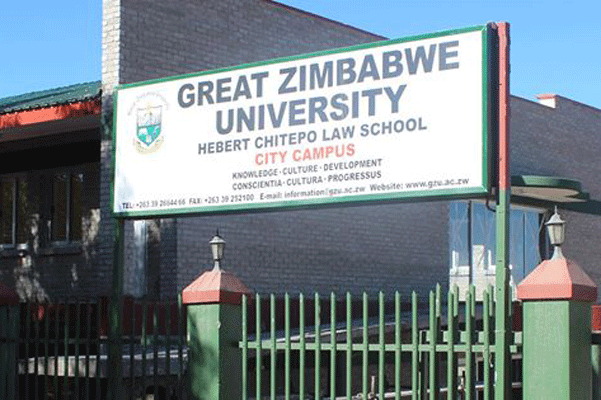‘GZU should nurture local culture’
Share

THE Great Zimbabwe University (GZU) in Masvingo should continue nurturing the
country’s local and African culture and values through research and innovations,
Vice-President General (Retired) Constantino Chiwenga has said.
Named after the country’s heritage site, the university has already taken that
direction by naming its various faculties in honour of Pan Africanists and must
continue upholding that direction, he said.
GZU has the Robert Mugabe School of Education, Gary Magadzire School of
Agriculture, Simon Mazorodze Medical School, Julius Nyerere School of Social
Sciences and Herbert Chitepo Law School, paying homage to Zimbabwean and an
African leaders of note.
Other African Zimbabwean and African leaders who carved their names into the
continent's history include Ghanaian leader the late Dr Kwame Nkrumah, Muamar
Gaddafi of Libya, Samora Machel of Mozambique and local icons such as Jairos Jiri,
musicians Leonard Dembo and Oliver Mtukudzi and the author of Zimbabwe’s first
constitution, Dr Edison Zvobgo.
General (Rtd) Constantino Chiwenga said this after the commissioning of the
university’s innovation hub last Friday.
The hub, a GZU wing is expected to nurture young dreams, and this should be
rooted in research of the indigenous culture.
I am aware that the Great Zimbabwe has a unique and important niche in the
research ecosystem that is promotion of culture and heritage. In that vein, your
research and innovation is expected to nurture the Zimbabwe cultural brand and
uplift the livelihoods of our people through science-based solutions,” he said
President Mnangagwa stressed the need for innovation hubs and industrial parks to
be real centres of excellence. These must churn out goods and services to satisfy
the domestic market, he said.
Earlier, addressing delegates at the National Research Science and Technology
Innovation, President Mnangagwa urged the university to maintain focus on
extensive and impactful research with regards to heritage-based knowledge across
various disciplines.
This includes indigenous herbs, medicines, climate change mitigation, disaster
management, traditional grains, food and dry land agricultural systems.
Minister for Higher and Tertiary Education, Innovation and Technology Development
Professor Amon Murwira said the local heritage is the nation’s source of dignity.
“Our heritage is our source of dignity, our heritage is our food, our heritage is our
confidence, our heritage is our medicine, our heritage is our power our heritage is
our home. We shall develop Zimbabwe based on what we have here and using our
hands and we shall be able to trade based on the value addition of thing that we
have.”
After colonisation most African countries adopted cultures of their colonisation
masters and turned their backs on their very culture the leaders jointly felt needed to
be revisited.
Methods of worship and public behaviour including dressing looked down upon
traditional ways and this led to disappearance of "Ubuntu" and respect for sacred
places of African values.
Other practices like rain-making, thanksgiving after harvests and other traditional
ceremonies including the selection of chief and leaders, the training of village
midwives and initiation of boy and girl children have been abandoned and are left in
very few communities.
Several values of upbringing of children that were abandoned are blamed for the
unruly and deplorable behaviours of youths now unproductive and hooked in drugs
almost tearing the country apart.








